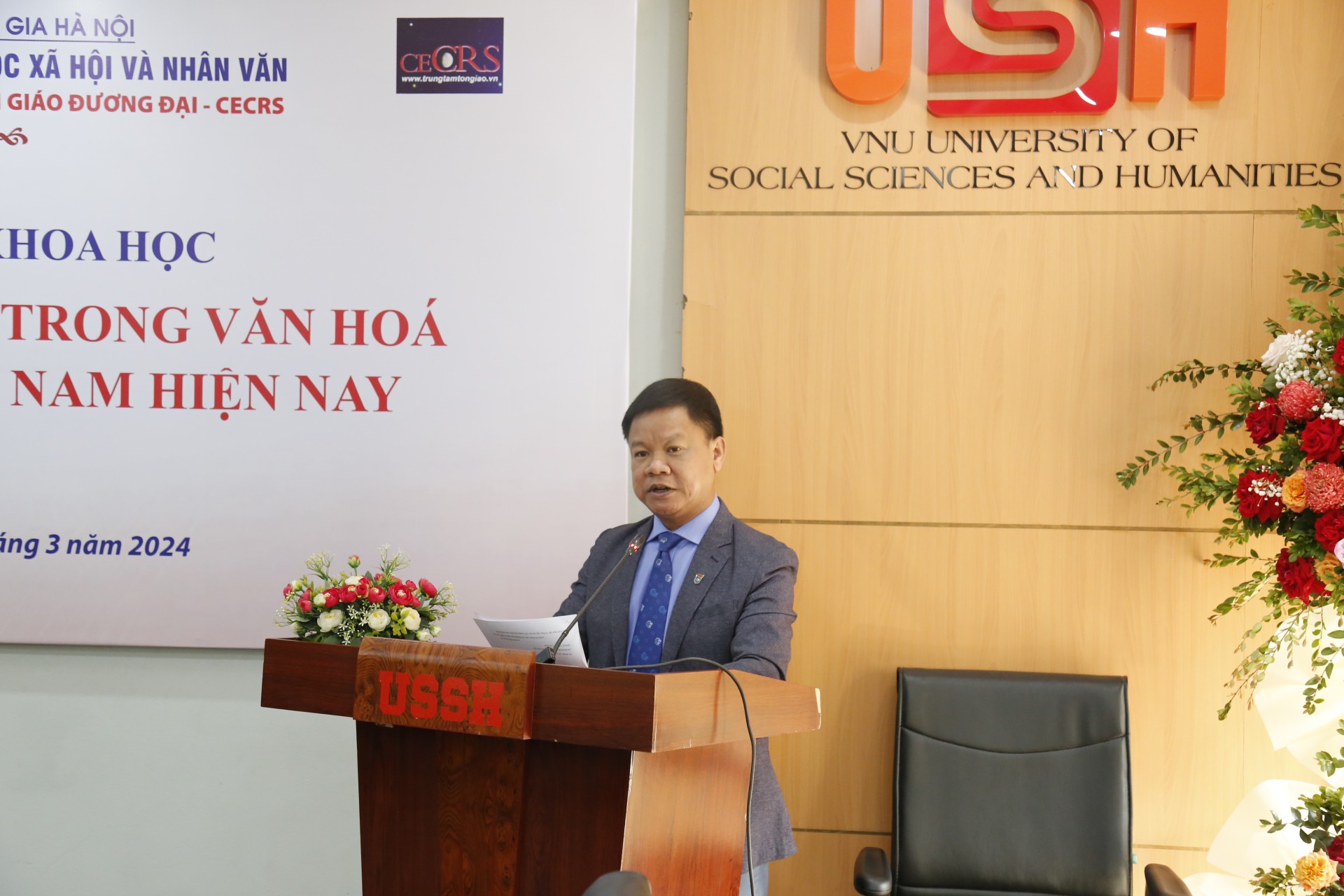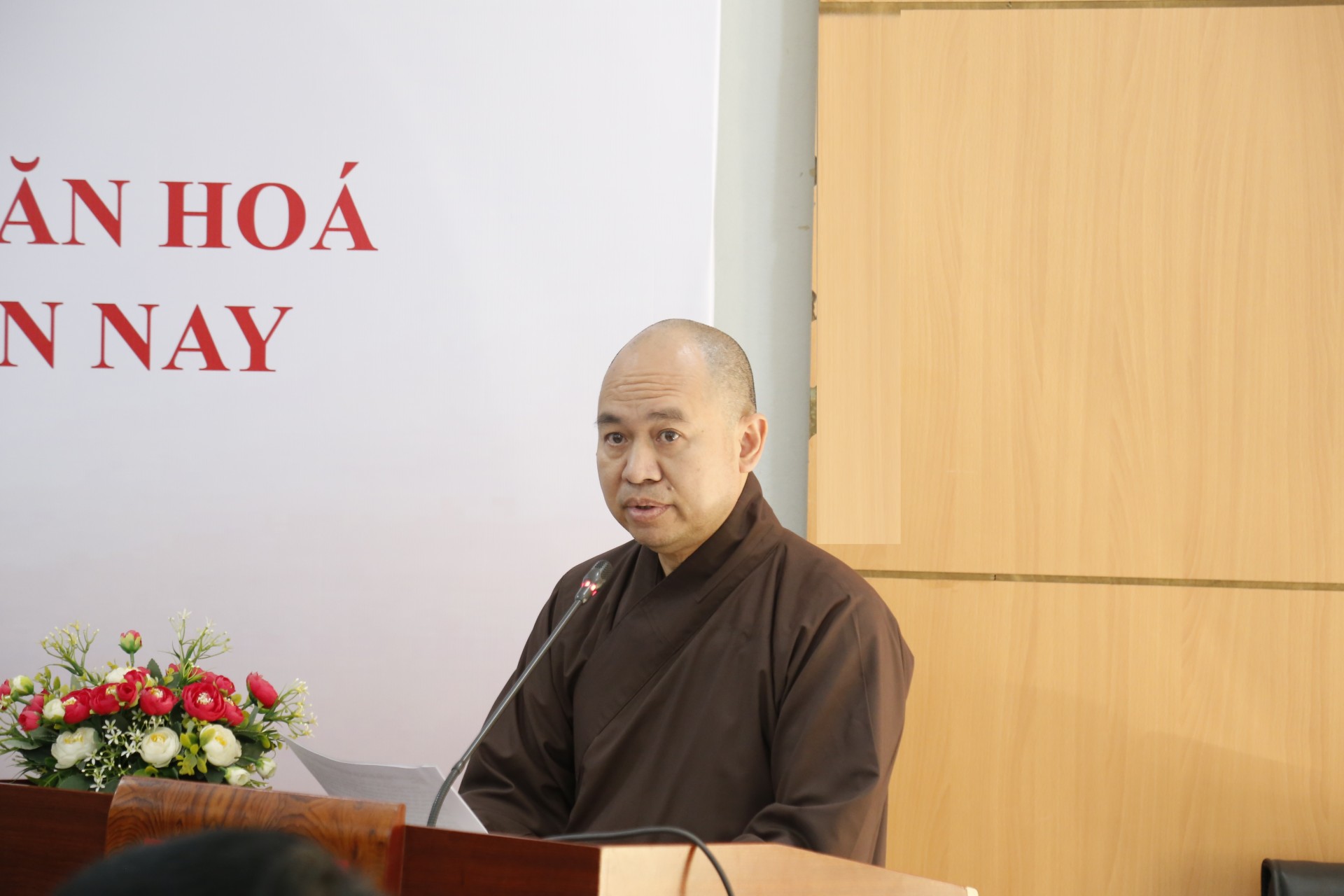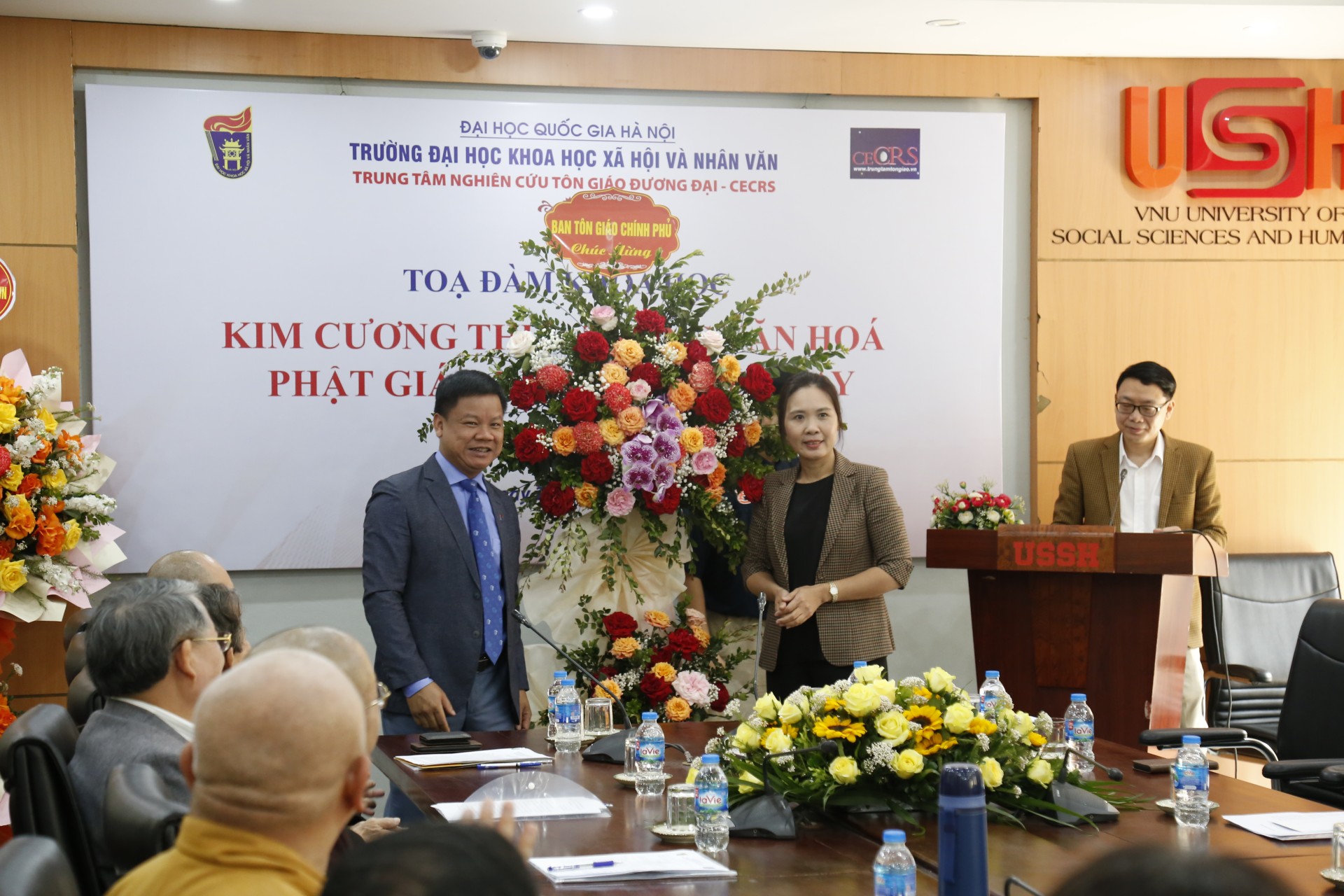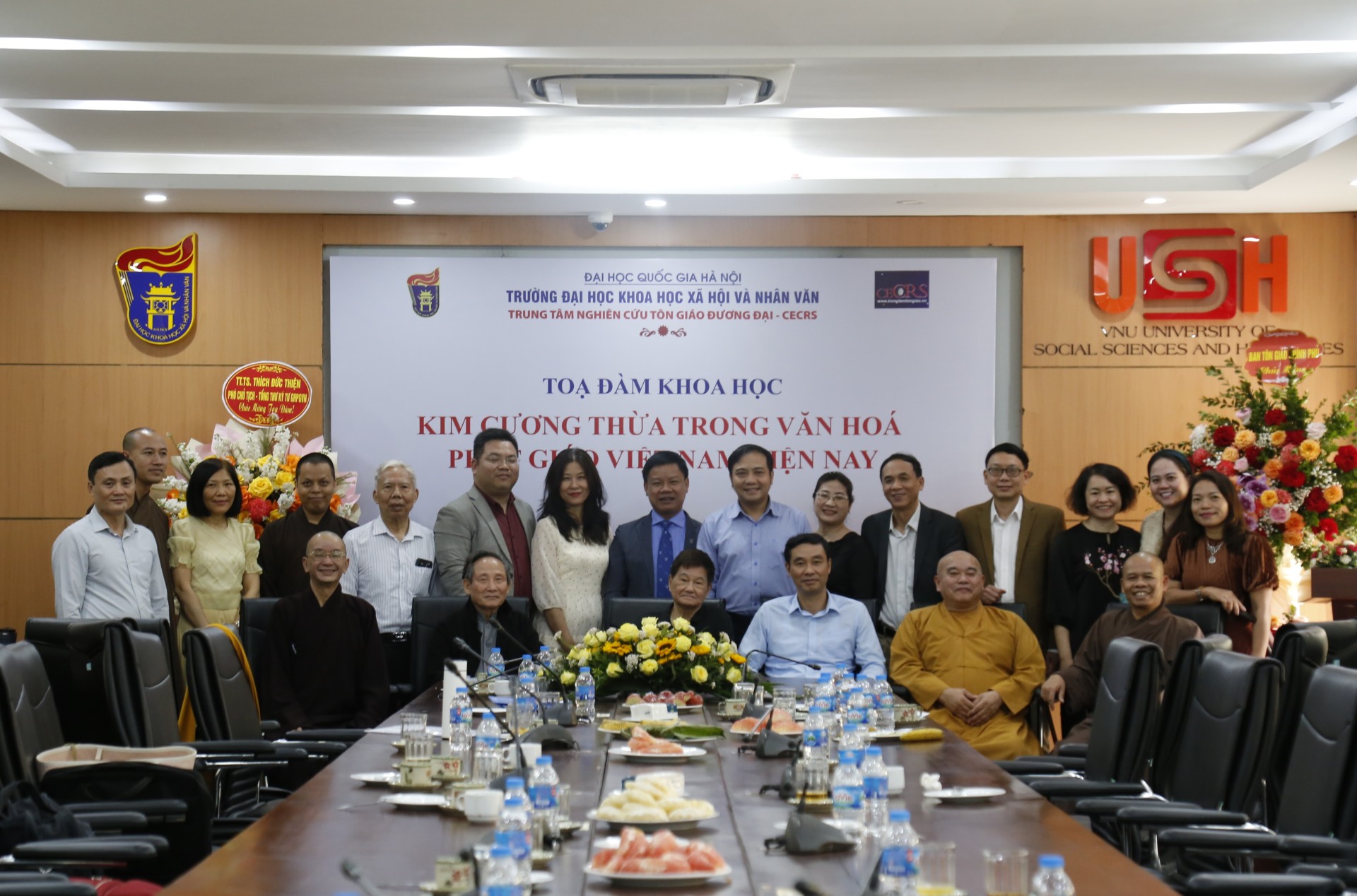Assoc.Prof.Dr. Lai Quoc Khanh - Vice Rector of the University of Social Sciences and Humanities
In light of this, the scientific seminar titled "Vajrayana in Contemporary Vietnamese Buddhist Culture" was organized. It aims to initiate research directions to promote the positive values of Buddhism, including Vajrayana, in Vietnam, thus making practical scientific contributions, addressing societal needs, and informing policy decisions.
The seminar, held on the morning of March 26, 2024, was chaired and organized by the Center for Contemporary Religious Studies at the University of Social Sciences and Humanities, Vietnam National University, Hanoi. It was attended by venerable monks, government officials, esteemed scholars, students, and trainees both within and outside the University of Social Sciences and Humanities, Vietnam National University, Hanoi.
Venerable Thích Đức Thiện, Ph.D. - Vice President, General Secretary, Head of the International Buddhist Affairs Committee of the Central Committee of the Vietnam Buddhist Sangha
Venerable Thích Đức Thiện, Ph.D. - Vice President, General Secretary, Head of the International Buddhist Affairs Committee of the Central Committee of the Vietnam Buddhist Sangha emphasized: “We must affirm that there is no indigenous Vajrayana sect in Vietnam. And to this day, there is no Vajrayana sect.
The emergence of Vajrayana is a result of cultural exchange and connection, international relations of the Vietnam Buddhist Sangha, thereby forming a community with faith and practice in Vajrayana, but in reality, they are all Zen followers.
In the context of increasing global interconnectedness, the development of Vajrayana is currently catering to the spiritual needs of individuals. Additionally, Vajrayana places of worship are contributing to the growth of tourism and the local economy and society”.
Prof. Lê Mạnh Thát, Vice President of the Vietnam Buddhist Academy in Ho Chi Minh City
Prof. Lê Mạnh Thát, Vice President of the Vietnam Buddhist Academy in Ho Chi Minh City, said that: “Vajrayana encompasses a vast culture, including the Kangyur (Tibetan Buddhist canon), a characteristic of Tibetan Buddhism. Therefore, today's seminar with the topic of Vajrayana in modern Vietnamese culture is very appropriate in the current period.
Vajrayana currently has a large community worldwide, so we need to research to introduce Vajrayana to Buddhists in Vietnam.
We believe that today's seminar is a standard academic event that has garnered significant attention from the community. For instance, I am frequently invited to teach the Tibetan language to facilitate the translation of Tibetan scriptures into Vietnamese, highlighting a practical need in society for practicing and applying Vajrayana.
VNU, as Vietnam's premier institution for social sciences and humanities research, is well-positioned to investigate Vajrayana, a topic poised to gain prominence and influence the nation's cultural life in the future”.
Within the framework of the seminar, 12 presentations from reputable scientists at the University of Social Sciences and Humanities, Vietnam National University, Hanoi, the Vietnam Buddhist Sangha, and domestic research and policy-making agencies were presented, covering the rich aspects of Vajrayana in the historical flow of Buddhism in particular and Vietnamese culture in general.
With multi-dimensional perspectives on the history of formation and development, and aspects of identifying and developing the good culture of Vajrayana in Vietnamese culture, the scientists brought to the seminar a serious, open scientific exchange atmosphere and inspired many new research directions.
Issues discussed at the seminar included: "Vajrayana in Vietnam: Past and Present"; "Vajrayana in the Spiritual Life of Vietnamese People Today" "Vajrayana in the Vietnamese Cultural Flow" "A Look at the Influence of Vajrayana in Taiwan on the Development of Vajrayana in Vietnam" "The Imprint of Vajrayana at Temples in Hanoi"
According to Venerable Thích Đức Thiện, Ph.D. Vice President, General Secretary, Head of the International Buddhist Affairs Committee of the Central Committee of the Vietnam Buddhist Sangha: “It can be seen that, from the way the seminar was set up to the presence of venerable monks and nuns from the Vietnam Buddhist Academy, researchers from institutes and research centers, chaired by the Center for Contemporary Religious Studies, University of Social Sciences and Humanities, VNU, has shown caution and scientific rigor. I highly appreciate the high academic and practical value of the seminar, helping the Vietnam Buddhist Sangha in particular and religious managers in general in policy planning and orienting religious life in Vietnam”.






